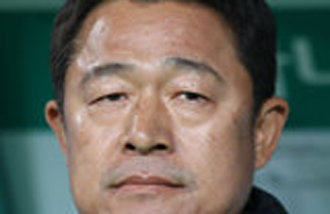[Opinion] Flip-flopping Policy on Phone Discounts
[Opinion] Flip-flopping Policy on Phone Discounts
Posted February. 05, 2008 03:01,
The presidential transition committee has goofed in pushing ahead with President-elect Lee Myung-baks pledge to cut phone rates. The committee last month had publicly promised to announce a policy on lowering phone bills 20 percent, but retreated in the face of heavy opposition and criticism from the telecommunications industry. The committee then flip-flopped on its policy and tried to introduce an alternative plan charging both the caller and the receiver. Yet again, the plan was smothered after severe criticism from consumer rights groups. Finally, the committee opted out of its discount pledge yesterday, leaving the decision to the industry.
Watching the wavering policy of the committee, certain critics euphemistically defined it as hyper enthusiasm. Others denounced it as a typical example of arrogance and ignorance. Experts said the committee was probably unaware of the conflict between major and minor telecommunications companies, and the Information and Communication Ministrys lack of power to force firms to offer discounts. Amid the debacle, SK Telecom announced a series of new discount plans yesterday, apparently catering to the committees desire. In reality, however, SK had conceived the plan long before to induce loyalty from subscribers.
The SK plan will result in a meager average discount of 4.35 percent for a subscriber, or 1,931 won a month. Minor telecommunications companies such as KTF and LG Telecom called the plan a means of extortion. They said SK is trying to maintain a grip on its subscriber base while trying to lure new customers from minor service providers with the discounts. Consumer rights groups, which have long demanded lower phone rates, condemned the committees monopoly-friendly approach to the phone bill issue. When will the committee or the incoming administration introduce consumer-friendly policies?
Telecom companies now need state approval to raise rates. The committee has promised to abolish this requirement around September. Basically, the approach is laudable since government regulations are undesirable. Still, the government must make sure that the playing field is level even for minor competitors. Therefore, it must loosen its grip on matters directly related to customers, while toughening up regulations for a fair market. For example, minor telecom companies should be allowed to use the networks of leading companies.
Editorial writer Hong Gwon-hee, konihong@donga.com
Headline News
- Iran blames US sanctions for helicopter crash that killed president
- Pres. Yoon vetoes investigation into death of marine
- “Croatia Holds a Business Forum in Seoul…Looking forward to the development of trade relations”
- Samsung names new chief for semiconductor business
- Seoul City plans to expand welfare benefits






